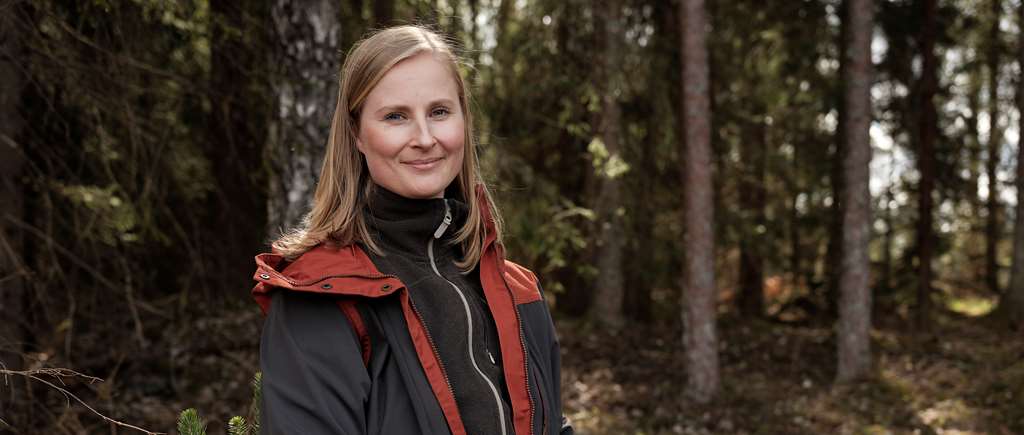The 2019 UN Special Report on Climate Change and Land shows that land use and forests play a vital role, serving three important purposes:
- Climate: CO2 uptake and storage
- Biodiversity: Provide the principal basis for important species
- Renewable raw material: For sustainable products that can replace fossil-based alternatives
Climate
While trees are growing, they capture and store CO2 from the atmosphere. As trees grow old, they capture less CO2 and are ready to be harvested to become biomass for sustainable products that can replace oil-based alternatives. Some products, such as building materials, also serve as carbon sink as they store the CO2 during the products' lifetime.
Biodiversity
The forests are among the world's most biodiverse ecosystems and home to most of the Earth's plants,
animals, bacteria, and other species. Forests provide vital products and services such as oxygen, clean air
and water, as well as building materials, energy and raw materials for numerous everyday products. There is an increasing recognition of the wide-ranging benefits that forests provide to society, such as recreation and social welfare. Identifying and protecting both ecologically and culturally valuable sites is therefore an important part of forest management.
Deadwood is a natural habitat for many valuable and vulnerable species found in old forests. Normally, both
the amount and variety of deadwood increase with the age of the forest. The forests must also provide
the necessary habitat for species with different requirements. Thus, variation in forest structure is key to
conserving biodiversity.
Key elements for sustainable forest management
A wide range of measures are needed to secure the forests' future role in obtaining biodiversity and
mitigating climate change, as well as being a provider of climate friendly solutions. To secure carbon storage
and access to sustainable raw materials, the amount of biomass must increase over time. Measures such
as planting new trees after felling are important in this context.
Protecting important biotopes and increasing the amount of deadwood and old trees are examples
of measures to secure biodiversity. Minimising adverse impact to soil and water from harvesting, soil
preparation, road construction and creation of buffer zones to protect watercourses are other examples.
Certification standards contribute to sustainable forestry
The certification of Norwegian forestry today is mainly according to the Norwegian PEFC Forest Standard
and the environmental management system ISO14001. PEFC is the world's largest forest certification system,
with presence in around 50 countries. The certification requirements are stricter and more detailed than set out in the legislation and encompass environmental, social, and economic considerations, including biological
diversity, outdoor life, climate, cultural monuments, long-term resource management and employees' rights.
The requirements ensure that the forest owner safeguards all values and interests associated with the forest.
In 2022, the standard was revised in co-operation with 15 different organisations of which five of these are from the environment and outdoor life side. The requirements relating to environment and outdoor life are particularly tightened in the revised standard.
As an example, there will be a requirement for 5% of biologically important areas to be set aside for
properties larger than 1500 acres. There will also be demands for increased consideration for birds by
avoiding felling in important areas during the breeding season and protection of nest sites for birds of prey.
There are also clearer targets and measures to increase the proportion of continuous-cover forestry and small
group harvesting. The new standard with 30 different requirements is now up for international approval.
Environmental measures during the last 10 years have led to sustainability improvements in the Norwegian
forests. The proportion of deadwood as the most important living environment has increased by 38%
since the beginning of the 1990s, and the number of old trees has increased.
The transition to a society based on renewable and sustainable solutions with low-carbon footprint has resulted in an increased market for wood-based products. At the same time, Norwegian forests are increasing in size. For every tree that is harvested, two new ones are planted. Norwegian forests have been meticulously monitored since the 1920s by the Land Resource survey. The monitoring shows that Norwegian forests have grown three times over the last hundred years. Borregaard’s raw material Norway Spruce makes up the largest volume in the forests. However, pine and deciduous trees account for most of the increase, which
contributes positively to biodiversity in the forest.

